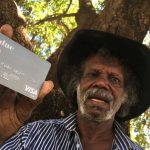“A Step Too Far”: Morrison Moves to Criminalise Cash Payments

Right now, the Morrison government is finalising legislation that will criminalise large cash transactions made to or accepted by individuals and businesses for goods and services transactions. The cash payment limit that will soon warrant prison time if breached is to be set $10,000.
Treasurer Josh Frydenberg released the exposure draft of the Currency (Restrictions on the Use of Cash) Bill 2019 towards the end of July. It creates four federal offences around the use of cash, two of which apply regardless of whether an accused person was aware of any legal restrictions.
This “economy-wide cash payment” is based on a recommendation made by the Black Economy Taskforce. Established in 2016, its final report states that the limit will “send a strong message to the community that it is not acceptable to avoid tax and other obligations by using cash”.
The proposal was announced during the 2018-19 federal budget, when Scott Morrison was still treasurer. Along with limits on cash, the now prime minister also spruiked a black economy hotline, in order to dob in suspect cash transactions: an idea, which is still on the agenda.
And while some commentators have labelled the move a step in the right direction, as it will attempt to stamp out dealing in the proceeds of crime, others see this further encroachment by government as a “step too far”, because Commonwealth of Australia issued cash is, after all, the legal tender.
A presumption of guilt
In a submission to the Treasury, CPA Australia head of policy and advocacy Dr Gary Pflugrath said while the accounting body recognises the “diminishing need to undertake large cash transactions”, it has concerns about the intention to impose criminal penalties for dealing in large cash payments.
“There are a number of existing checks and balances in the system to address criminal enterprises already,” the doctor wrote in the submission. “And to link all large cash transactions to criminality is a step too far.”
CPA Australia outlines that the 2018 Treasury Consultation paper doesn’t present “a strong evidenced-based case to justify the proposed extraordinary penalty for the use of legal tender”. And nor does it set out why creating criminal offences is the best way to deal with this issue.
Indeed, Dr Pflugrath sets out that the laws would run counter to well-established criminal law principles, in that it “extends criminal liability to innocent parties associated with a potential offender”.
And the legislation – which presumes that “only tax evaders, money launderers and criminals use cash” – also increases the powers of government to investigate and prosecute individuals without having to show that they’ve committed what’s classified as a criminal act under current laws.
The provisions of the legislation
The Restrictions on the Use of Cash Bill creates four criminal offences, which relate to cash payments with a value of $10,000 or more for goods or services transacted between two entities.
Two of these offences apply those who either intentionally or recklessly conduct a cash transaction of $10,000 or more. One relates to a single payment and the other to a series of payments. The maximum penalties for these crimes is 2 years prison and/or a fine of $25,200.
The other two offences are strict liability crimes, meaning the prosecution is not required to establish a fault element such as negligence, recklessness or intention. One applies to single payments and the other to a series of payments. The maximum penalty is a fine of $12,600.
The Currency (Restrictions on the Use of Cash—Excepted Transactions) Instrument 2019 sets out a number of transactions that the $10,000 cash limit doesn’t apply to. These include private transactions, legally required payments made by public officials and digital currency payments.
As assistant treasurer Michael Sukkar has pointed out, if an individual privately sells their car to someone else for $15,000, the law doesn’t apply. But, if someone purchases a vehicle from a car dealer for $10,000 in cash, this transaction would be in breach of the law.
A cashless society
“Part of it came out of the lead up to the banking royal commission, which showed a number of large deposit-taking institutions had breached the existing money laundering laws on a number of occasions,” explained UNSW economics professor Richard Holden.
The professor told Sydney Criminal Lawyers that he believes the laws “would be largely helpful in trying to combat these kind of activities”. However, he warns against overestimating their ability to do so, as its “one thing for it to be a crime on the books” and “another thing for it to be caught”.
The Liberal Nationals government has stated the proposed laws are part of a general transition towards a digital economy. And according to professor Holden, a completely cashless society would be the answer to the issues the government is trying to resolve around the black economy.
“It’s completely feasible,” professor Holden explained. “There’s between 6 and 10 billion dollars in lost tax revenue to the Commonwealth that they would get through everything from people taking cash off the books to people evading GST and other payments.”
A broadening reach
While making clear that he has no issue with these new laws, as they prevent people from shirking their civil responsibilities, such as paying taxes, Civil Liberties Australia CEO Bill Rowlings said the issue of Australia becoming a “cashless society is a civil liberties matter”.
“Poor people, older people, the confused and the non-IT literate need to have the choice to pay in cash,” Mr Rowlings emphasised. “If the government heads towards a cashless system, it will be a giant leap towards an Australia Card, which has been soundly rejected by Australians in the past.”
The Australia Card was a Hawke government initiative to establish a national identity card in the late 1980s, which the government asserted would help crack down on tax evasion and welfare fraud. The card proposal received such widespread condemnation that it never got off the ground.
Bipartisan greenlighting
The Cash Restrictions Bill is set to be introduced during the spring parliamentary sitting. And if it is passed, the new laws will take effect on the 1 January next year. Although, they won’t apply to entities required to report to anti-money laundering agency AUSTRAC until the first day of 2021.
And it seems that the legislation is likely to be waved through parliament with bipartisan approval, as shadow assistant treasurer Stephen Jones has outlined that he not only believes the laws are a step in the right direction, but he recommends they be extended to include cryptocurrencies.
Although, the Labor MP has also expressed his concerns that the cash limit laws could have unintended consequences, such as causing people to withdraw large sums of money to store underneath their beds. “It would create a real honeypot for criminals,” Mr Jones warned.








